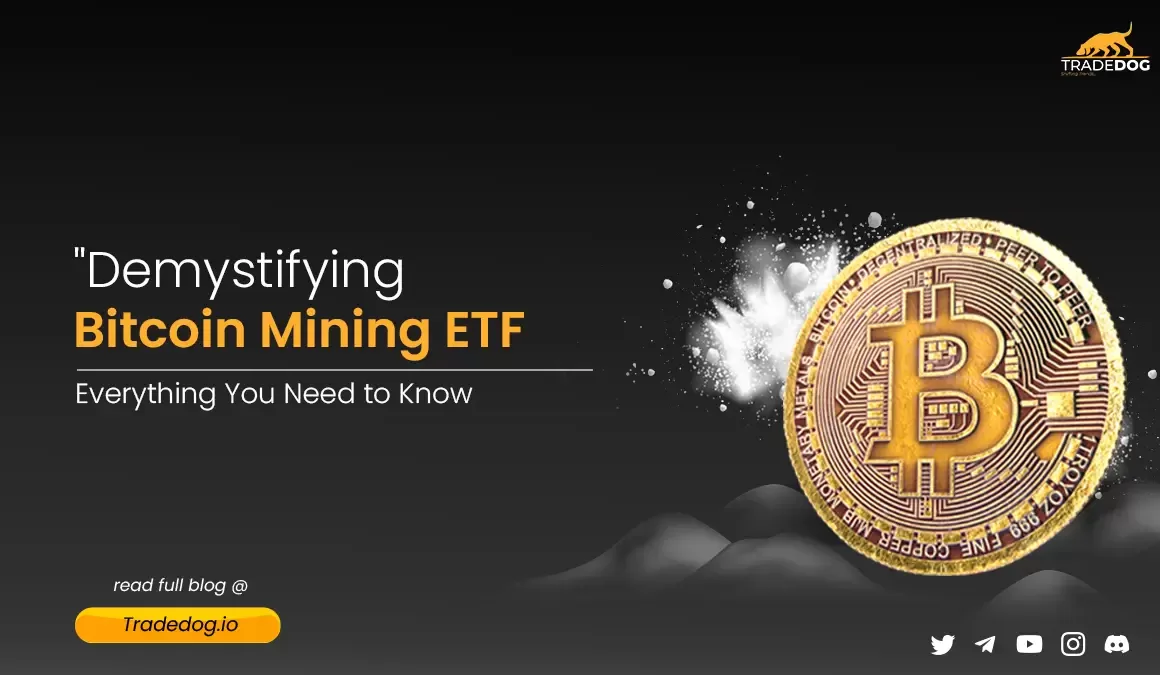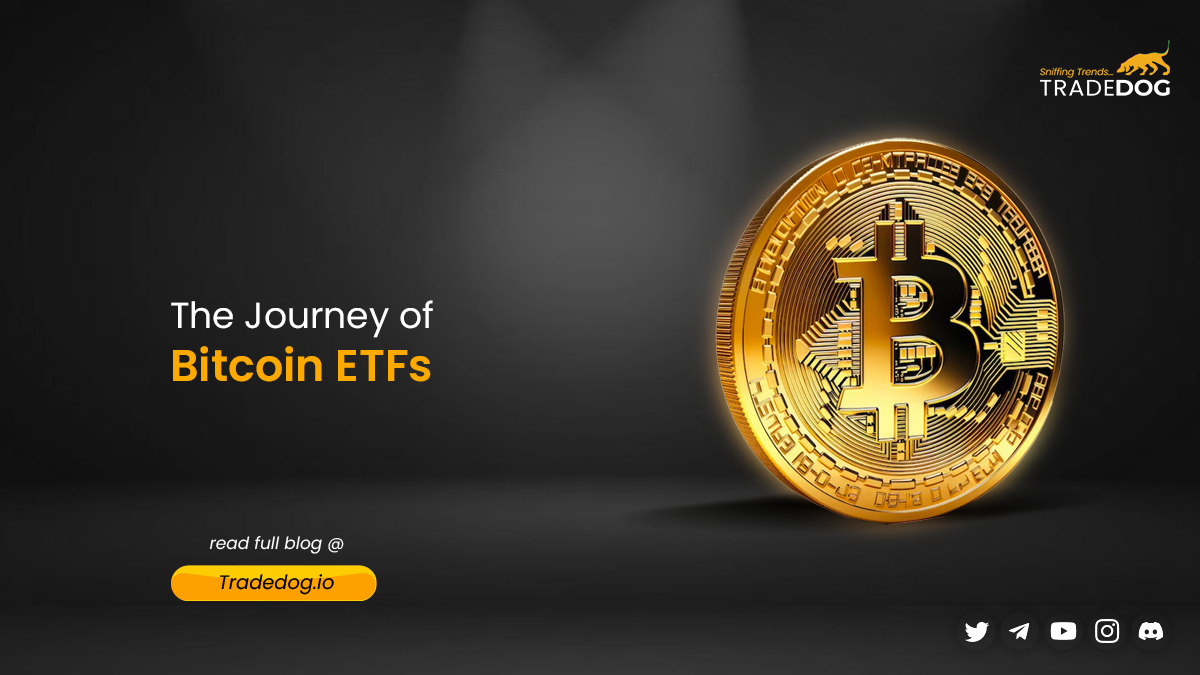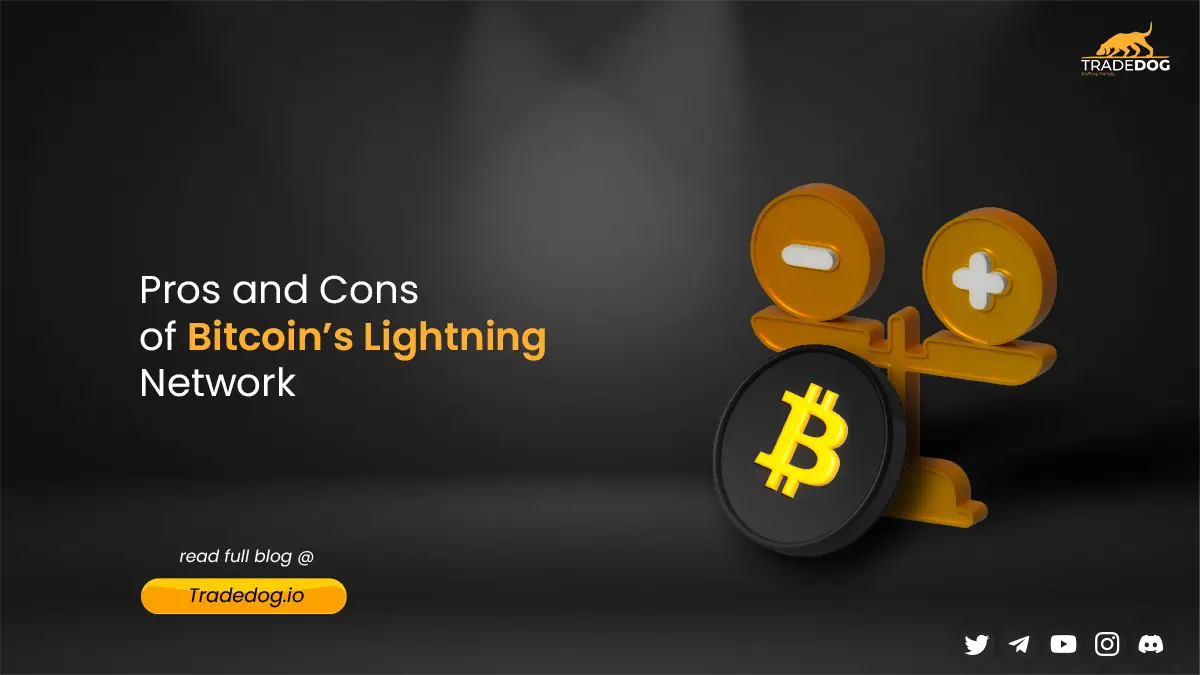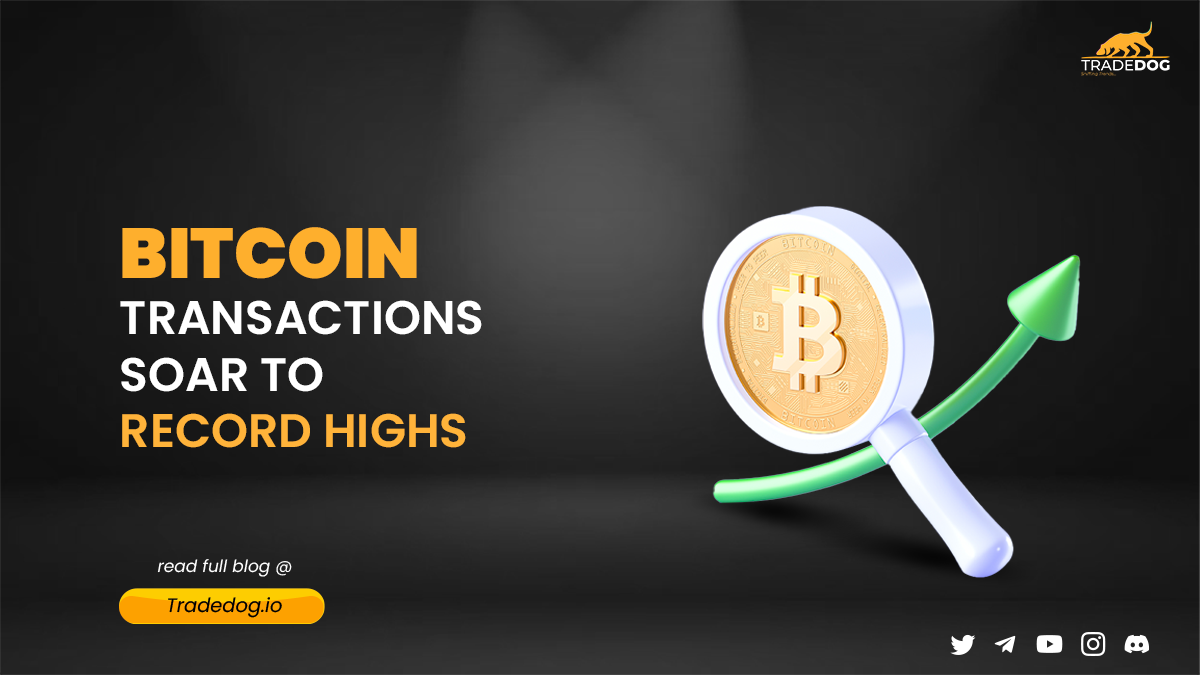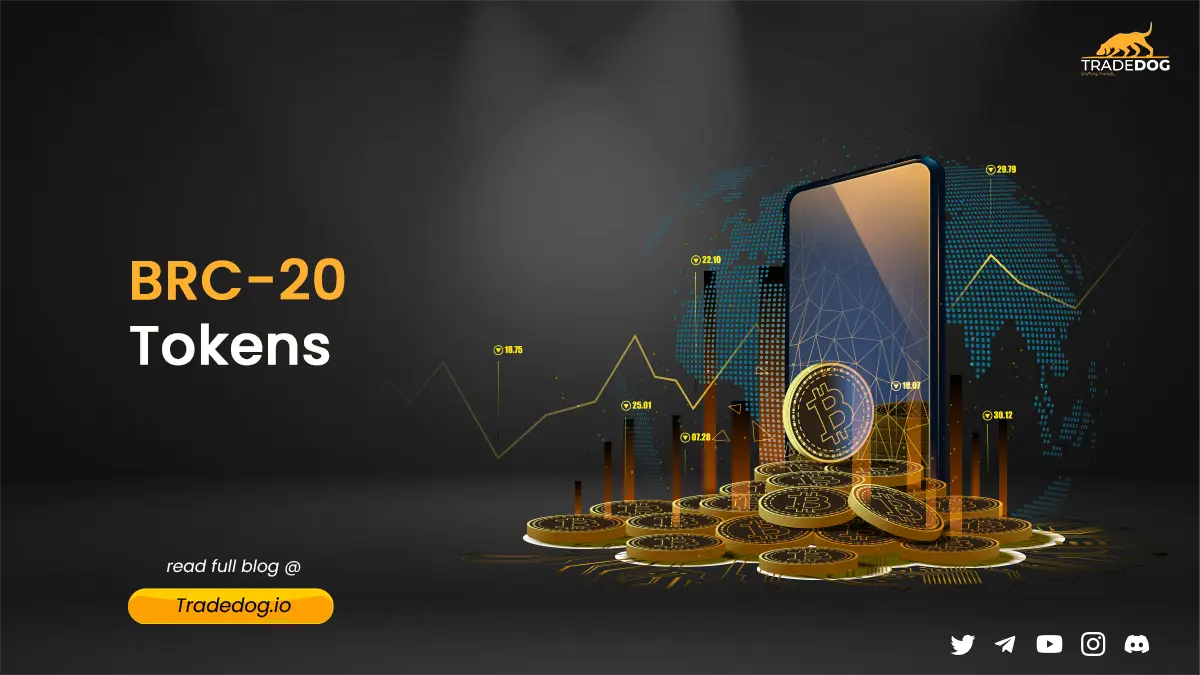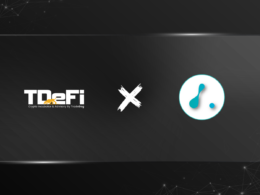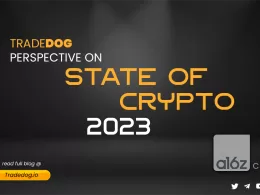Quick Links
An ETF is a conglomerate of multiple financial assets (stocks/bonds/derivatives/futures). When purchased by a fund, these become the fund’s holdings and are offered as fractionalized shares on exchanges that trade 24/7.
Bitcoin exchange-traded fund (ETF) is a collection of BTC-related assets brokers offer on traditional exchanges (stock exchanges). It is just like a normal ETF ~ a basket of multiple assets listed on exchanges and provides low-risk investment opportunities to the investors as the risk in such instruments is diversified due to segregation among different assets.
A Bitcoin mining ETF is an exchange-traded fund (ETF) that provides exposure to companies involved in mining Bitcoin, the popular cryptocurrency. Bitcoin mining involves using powerful computers to solve complex mathematical problems to validate transactions on the Bitcoin network and add new blocks to the blockchain.
One of the leading Bitcoin mining ETFs is WGMI by Valkyrie funds (a leading asset management firm). WGMI essentially represents a popular crypto phrase “We Are Gonna Make It”, depicting that the community would survive the bad markets.
How do Bitcoin Mining ETFs work?
Rather than investing directly in bitcoin, Bitcoin Mining ETFs are made up of investments done by the holding company in bitcoin mining companies. Bitcoin mining ETFs invest in companies involved in mining Bitcoin, such as those that manufacture the specialized hardware used in the mining process or those that provide hosting and other services to Bitcoin miners. By investing in a Bitcoin mining ETF, investors can gain exposure to the potential profits and growth opportunities associated with mining Bitcoin, without having to purchase and maintain the specialized hardware.
When an investor invests in a Bitcoin mining ETF, the funds are combined with other investors and collectively deployed to invest in the underlying companies. As the value of these companies’ shares fluctuates, so does the value of the ETF.
A Bitcoin mining ETF’s performance is directly correlated with the Bitcoin price and the profitability of Bitcoin mining. The companies included in the ETF are anticipated to do well if the price of Bitcoin grows and the mining sector continues to be profitable, which might raise the ETF’s worth. Although if there is a market crash that leads to a fall in the price of Bitcoin and impacts Bitcoin mining as well, the value of Bitcoin Mining ETFs is expected to fall in its correlation. Bitcoin mining ETFs can provide investors with a convenient way to gain exposure to the cryptocurrency industry and the potential profits associated with Bitcoin mining.
WGMI ETF ~ one of the best bitcoin mining ETFs by Valkyrie funds, the company mentions that the actively managed fund invests at least 80% of its net assets in securities of companies that derive at least 50% of their revenue or profits from bitcoin mining operations or from providing specialized hardware/software or related services to companies engaged in bitcoin mining.
Difference between Bitcoin ETFs & Bitcoin Mining ETFs
While both Bitcoin ETFs and Bitcoin Mining ETFs provide exposure to the cryptocurrency market, they do so in different ways. The main distinction between Bitcoin ETFs and Bitcoin Mining ETFs is that the former is backed by and tracks the price of Bitcoin while the latter invests in the companies engaged in mining Bitcoin.
Bitcoin ETFs are essentially a basket of securities representing ownership of Bitcoin and trading on traditional stock exchanges whereas Bitcoin Mining involves the use of specialized computers to solve complex mathematical problems to validate transactions on the blockchain and earn newly minted cryptocurrencies as a reward.
Benefits associated with Bitcoin Mining ETFs
Exposure to crypto
Price is one of the biggest barriers for typical investors to enter crypto. A short time after the Proshares Bitcoin ETF was launched on the NYSE, the price of Bitcoin (BTC) reached a record high of around $69K. As the price declined eventually, following the bear markets, the retail investors might not have the resources to buy 1 BTC even at low costs. However, BTC can be accessed indirectly through a BTC Mining ETF while staying within the financial constraints, risk tolerance, and investment objectives.
Easy to understand
Bitcoin Mining ETFs are considered an easy investment option for investors as it doesn’t require understanding the complexities of cryptocurrency mechanisms, blockchain, decentralized exchanges, wallet setup, and related concepts. Hence, it has emerged as one of the best options for investors to garner returns through BTC without having to learn about the associated concepts.
Convenience
Investors can invest in Bitcoin Mining ETFs without setting up a crypto wallet and converting the currency from fiat to crypto. Like investing in a traditional financial asset (stock or derivatives), investors can invest in BTC mining ETFs that also safeguard their funds against the price volatility of the digital asset.
Security
If cryptocurrency is purchased through an exchange, investors can choose to have their keys stored on that exchange if it offers that service.
However, wallets and exchanges can be hacked and keys are stolen—which means that the cryptocurrency can be stolen. An ETF on the other hand doesn’t require an investor to own any cryptocurrency, store keys safely, or move the keys back and forth between different types of storage. They own shares of the fund, which takes the risk of storing keys.
Investing in Bitcoin Mining ETFs
According to a blog published by the block, Bitcoin miners generated over $15 Bn in revenues before the market crash in 2021. Alongside, WGMI ETF which got listed on the Nasdaq exchange on Feb 22’ has emerged as the leading ETF in the traditional equity ETF market and the leveraged equity ETFs.
Quoted by industry experts, the fund is highly concentrated as it has invested in only 20 firms, including Argo Blockchain, Bitfarm, Intel, and others.
As of now, the fund highlights negative yearly returns and is 70% down approximately. However, considering the performance of WGMI in 2023, it did outperform all the other Bitcoin-based ETFs and highlighted an increase of approximately 69.39% (Jan-Mar), the fund currently trades at $8.21.
Looking at the macro levels the volume is quite volatile. However, the market cap of BTC grows in correlation with the revival of markets. It is expected that as the adoption of BTC rises among retail audiences (investing & transactions), its mining would also boost, fueling the revenues and market capitalization of the companies engaged with the mining operations & service providers. The overall positive increase in value, as well as mining activity for BTC directly, adds up to the value accrual for BTC mining ETFs, making it a suitable investment.
Closing Thoughts
The ultimate objective behind Bitcoin ETFs is to allow more people to invest in digital assets without going through the hassle associated with them. Bitcoin Mining ETFs have been considered the most preferable option when it comes to investing in BTC-based ETFs as it doesn’t involve direct exposure to the digital asset (BTC) and rather depend on the companies that are engaged with its mining operations. However, the fund is neither approved nor disapproved by the Securities and Exchange Commission (SEC), and it is suggested to go through the prospectus in depth before investing.
Noting all the overall features & benefits, it can be concluded that investment in BTC mining ETFs can be a preferable option for traditional investors who restrain from directly investing in crypto or have less knowledge about digital assets and the crypto ecosystem. Although there are some risks like price volatility, regulations, demand-supply behaviour, mining risks due to malfunctions in the technology, etc., associated with the ETF, it is therefore recommended to DYOR before putting in the capital.





